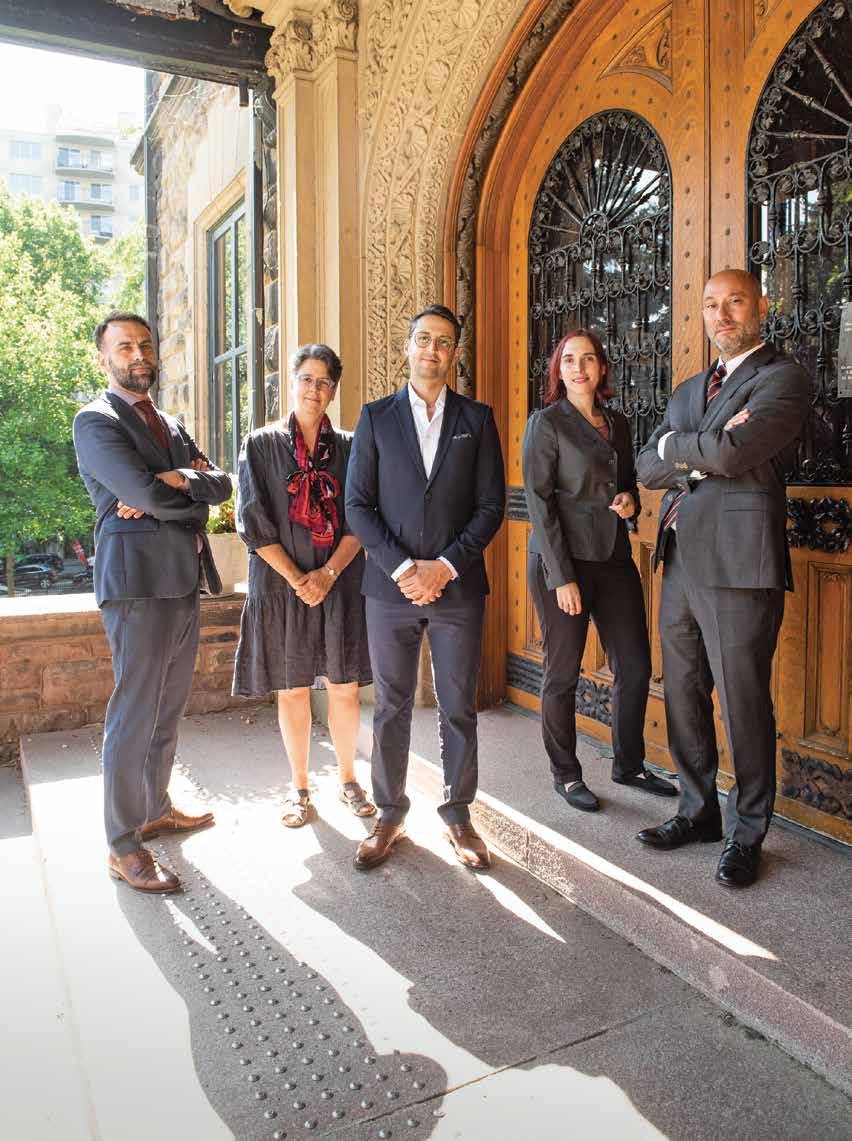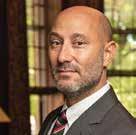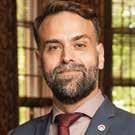
6 minute read
Rencontre avec nos nouvelles embauches professorales
Cinq personnes se sont jointes au corps professoral de la Faculté à l’automne 2023, apportant de l’expertise en droit civil et comparé, en droit aérien et spatial, ainsi qu’en droit pénal.

Michelle Cumyn, BCL’92, LLB’92,
Professeure titulaire – droit civil et comparé
Comment est né votre intérêt pour votre domaine de recherche ?
« On lie les bœufs par les cornes et les hommes par les paroles. » Antoine Loysel, un auteur français du 17e siècle, présentait ainsi les effets du contrat. Certes, le langage juridique est malléable. Plusieurs personnes ou situations risquent d’échapper à son emprise. Néanmoins, j’ai toujours été fascinée par la capacité du droit à modeler les comportements à travers le langage. Je m’intéresse donc au raisonnement juridique et aux domaines classiques du droit qui ont une longue histoire. Ce droit classique parvient encore, tant bien que mal, à saisir les réalités contemporaines.
Quelle est une question juridique qui vous fascine à l’heure actuelle ?
Je travaille actuellement sur le contrat d’adhésion. Lorsque vous acceptez sans le lire un formulaire d’adhésion, vous êtes en principe lié.e par l’ensemble de ses clauses. À l’origine, les tribunaux ont adopté cette règle parce qu’ils tenaient responsable la personne qui signait un écrit sans le lire. Cette justification ne tient plus, dès lors que la longueur et la complexité du formulaire d’adhésion rendent illusoires la lecture et la compréhension de ses clauses. Je propose que la lisibilité du formulaire signé ou accepté par l’adhérent soit une condition générale de son intégration au contrat.

Noah Weisbord, BCL/LLB’03
Associate Professor – Criminal Law
How did you become interested in your field of research?
As almost everyone does: through a great teacher. An inspiring McGill professor told me about an innovative, risky process that was underway in Rwanda to bring justice and healing after the genocide. The judicial system was eviscerated and there was a risk of continued genocide if the situation was not handled sensitively. The Rwandan solution was a mash-up of a local 14th-century restorative justice practice called Gacaca with elements of the South African Truth and Reconciliation Commission and the post-World War II Nuremberg trials. As a law/social work student, I travelled to Rwanda to observe the process. There I began to understand the role of criminal law in managing, reflecting, or exacerbating intergroup conflict.
What’s a legal question that currently fascinates you?
What is law’s place in war? The answer is not obvious. Law will not end war. But neither is law dead or irrelevant in wartime. Law permeates the bureaucratic, legalistic structure of the modern war machine. Leaders, powerful or not, must negotiate the legal terrain to wage war, including persuading the population of the justice of the war, persuading allies, persuading domestic and international courts, purchasing weapons, negotiating leases on foreign bases. Law is not simply a constraint on power. It can slow leaders or assist their military goals. My research asks how law can moderate the rush to war and mitigate war’s destructiveness.

Jeffrey Kennedy, LLM’14, DCL’20
Associate Professor – Criminal Law
How did you become interested in your field of research?
My first real exposure to criminal justice came through undergraduate volunteering in which ordinary community members supported people after their release from prison. The humanizing encounters there, the insights into criminal justice realities, and the experience of coming together to hold this issue of collective concern were all formative for me. I imagine those were the seeds of nagging discomfort with the criminal justice system and interest in what it means (or could mean) to talk of the ‘public’ nature of criminal justice, later cultivated in law school, graduate studies, and other community work.
What do you look forward to the most about joining McGill?
Oh geez do I have to pick one thing? I’ve always found McGill Law to be a really inspiring academic community. The thinking that goes on here is curious, creative, and challenging, and the people colleagues and students alike are so impressive yet still want to do better. I’m really excited to work every day in that kind of environment, to see what I can contribute to it, and to see what it will bring out in me.

Vincent Correia
Professeur titulaire – droit aérien
Codirecteur de l’Institut de droit aérien et spatial
Quelle est une question juridique qui vous fascine à l’heure actuelle ?
Appréhendé pendant de nombreuses décennies comme un « droit d’ingénieurs », puis comme un droit exclusivement économique, le droit aérien n’est heureusement pas imperméable aux nouvelles attentes sociales. La décarbonation du secteur passe par des instruments juridiques internationaux novateurs, mais devant parfois faire face à des actions nationales ou régionales ambitieuses ou, au contraire, pusillanimes. D’autres domaines d’importance sont également marqués par cette tendance : les droits des passagers et personnes à mobilité réduite, notamment. C’est donc l’étude de ces nouvelles questions de droit, dans la perspective de la dialectique unité-fragmentation du droit aérien international, qui m’anime.
Qu’est-ce qui vous enthousiasme le plus à l’idée de vous joindre à McGill ?
Travailler avec les experts reconnus de l’Institut de droit aérien et spatial et les autres collègues de la Faculté de droit me permettra de développer des activités de recherche et d’enseignement à la hauteur des enjeux contemporains du secteur aérospatial. Le droit aérien et spatial est en effet profondément transverse et transnational. Il ne peut donc être sérieusement étudié de manière isolée. Or, la Faculté de droit de McGill compte parmi ses membres d’éminents et d’éminentes spécialistes avec lesquels j’ai hâte de pouvoir collaborer. Je suis également ravi de pouvoir partager mes connaissances avec les étudiants et étudiantes de la Faculté de droit de McGill et de m’enrichir à leur contact.

Andrea Harrington, LLM’14, DCL’17
Associate Professor – Space Law
Co-director of the Institute of Air and Space Law
How did you become interested in your field of research?
From an early age, I have always loved space. Watching Star Trek and televised launches with my mother inspired me to consider what humanity could achieve in/using space. Admittedly, mathematics is not my strong suit, so for a long time I thought that I personally wouldn’t be able to contribute to space endeavors. When I discovered the field of space law, I knew it was for me and immediately sought educational opportunities to develop that expertise. I started that journey at the McGill Institute of Air and Space Law and am thrilled to be back here again.
What do you look forward to the most about joining McGill?
I am honoured and humbled to have this opportunity to rejoin such a robust intellectual community, including our faculty, staff, students, and visitors. I look forward to the continuing scholarly engagement arising from our teaching, research, and outreach efforts. Most of all, though, as a first-generation university graduate, I am proud to be able to meaningfully give back to the institution that enabled my success in my field and help the next generation(s) of students to succeed in turn.










